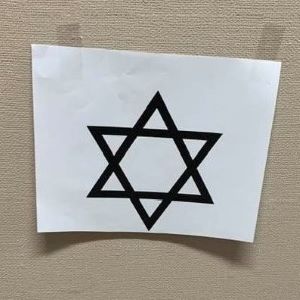
Being Visibly Jewish Supports Other Religious Minorities
By Peter Reitzes
When I began working in a North Carolina public school eight years ago, I was the only Jewish staff member in the building. On Sunday January 5, the last day of my school’s holiday break, I sent the following email to my entire school staff numbering more than 100 colleagues:
January 5, 2020
Hey all and Happy New Year,
Amid rising antisemitism in the U.S. and abroad, the American Jewish Committee has designated Monday, January 6, as #JewishandProud Day. Tomorrow when I arrive at school I will be wearing a kippah which is a small Jewish head covering like a small hat. I will be wearing my Judaism with pride.
The brief background is that worldwide there has been an alarming increase in antisemitic acts. For just two examples, in 2018 a gunman murdered 11 people at the Tree of Life synagogue in Pittsburgh. During our holiday break, a man invaded a rabbi’s house in Monsey, NY and stabbed five Jews celebrating Chanukah.
Tomorrow (Monday) I will be visibly Jewish with my kippah on to join this worldwide celebration of pride.
Overwhelmed with Support
I have been overwhelmed with positive and supportive emails, conversations, and actions with my colleagues. One colleague immediately responded to the entire school, “I love this, Peter!! How can we respectfully show support?” My principal quickly responded, “I’ve got your back! How else can the admin team help?” I received many more supportive emails.
When I arrived early to work I saw that a fellow therapist had already taped a Star of David on our shared office door. Several other colleagues did the same. Others were wearing the Star of David. My colleagues, who are overwhelmingly not Jewish, had embraced JewishAndProud Day.
A number of colleagues stopped me in the hallway to offer their support and concern about growing antisemitism. Some asked, What is going on with all this is antisemitism? Why in New York? Others said that they had been thinking of me and my family after learning of the terrible Chanukah stabbings in Monsey, NY.
Being Visibly Jewish Helps Others
A new teacher in my school approached me and said she completely supports me. As far as I know, she is the only Muslim staff member in the building. She dresses in a traditional manner. This teacher asked me about the kippah I was wearing. I could tell she was happy I wore it. We quickly bonded over being in religious minorities and we also bonded over the support we feel at work. I got the sense this teacher appreciated seeing someone else at work with a head covering. As I walked away, a warm feeling overcame me as I realized that by being visibly Jewish I may have helped someone who is visibly Muslim feel more accepted and comfortable at work.
Many students asked me about the kippah which was completely appropriate and welcomed. A few laughed uncomfortably, which is understandable considering many students have likely never seen a kippah or understood what it represents. This experience gave me a greater appreciation for the challenges that observant Muslims, Jews, and others experience when they wear traditionally religious attire (Having said this, I want to be clear that I do not claim to know what it is like to walk through the world wearing traditional Muslim or Jewish clothing).
Non-Jewish Colleagues Support #JewishAndProud
Numerous people asked how they could help support #JewishAndProud Day. Some non-Jewish allies displayed the Star of David. I provided my colleagues several links on antisemitism and explained that one way of showing support is by sharing these on social media to help educate others about the terrible rise in antisemitism, violence against Jews, and general intolerance. One teacher who shared these links on her social media told me she listens every day to National Public Radio, but wonders why NPR hasn’t reported more on antisemitism. I shared that the rise in antisemitism has rattled many in the Jewish community and that many of us are also rattled by the lack of media coverage.
A note one teacher left me summed the experience: “It is such a big help to have someone from inside the community help others know how to show support.” The principal asked what the administration can do to help in the future. I responded that I am embarrassed to say that I do not have an immediate answer, but am deeply appreciative of the offer and will be speaking with local Jewish leaders and others about this kind and important offer.
Peter Reitzes is a speech-language pathologist in Chapel Hill, NC and a Voice4Israel board member.
